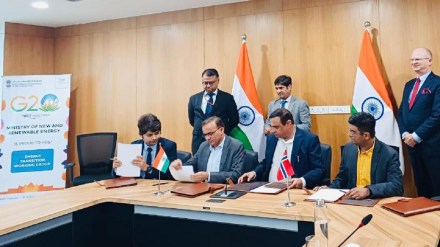The Norwegian government has signed a pact with the Indian power entity, Noida Power Company Limited (NPCL) to initiate a pilot project in the area of renewable energy.
Noida Power Company Limited (NPCL) has signed a consortium agreement for carrying out a pilot project on Demand Response in Greater Noida under the India-Norway Energy Taskforce. The agreement was signed in the presence of the joint secretary of the Ministry of New and Renewable Energy and the Norwegian ambassador to India.
According to the statement, NPCL will select the interested consumers who are willing to participate in the above demand response programme. Consumers from across the categories may apply at NPCL’s Customer Care Centre at Knowledge Park-1 to be a part of the above programme.
Demand Response is an important component of modern energy management systems that enables electricity consumers to actively manage their energy consumption during peak demand periods.
Demand Response allows consumers to adjust their energy consumption from peak hours to off-peak hours, which can help balance the grid and prevent blackouts, said NPCL’s spokesperson.
“Further, eligible consumers may also reduce their energy bills while having a greater degree of control over energy usage by participating in the Demand Response Programme,” it said.
The Pilot Project will continue until 2025. The outcomes of the pilot will be shared with the State Regulatory Commission, which may lead to the formulation of an appropriate incentive mechanism for all consumers.
Norway has one of the World’s longest histories in producing green hydrogen. India is pursuing its climate control goal under the mandate of the green transition.
The India-Norway has formed the Joint Working Group (JWG) on Science and Technology to expand the scope of their cooperation in new areas of development. Under JWG, both governments are collaborating on green hydrogen, ocean science, cyber-physical system, blue economy and information and communication technology. According to the statement, the group will further continue to strengthen existing areas of cooperation such as polar sciences, bio-economy, renewable energy, nano-science technology, and anti-microbial.
